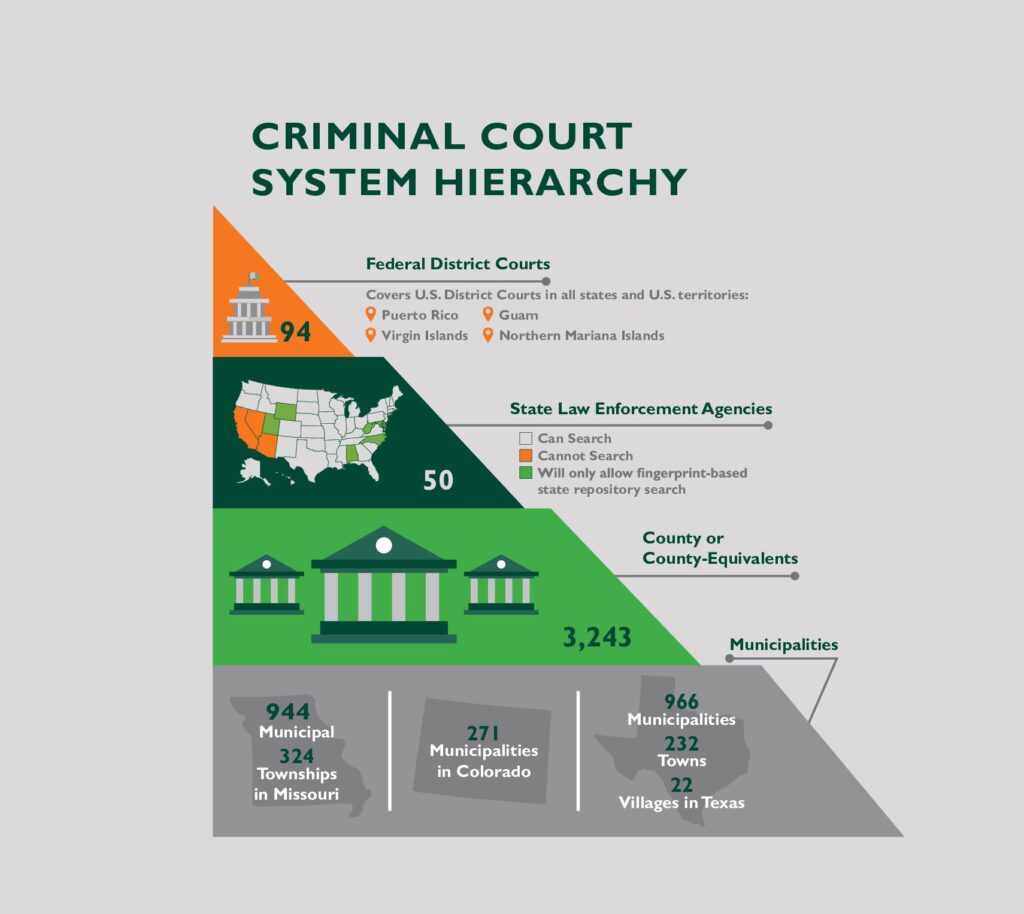
A case is filed in federal court if the defendant has violated a federal statute. An offense can also fall under federal jurisdiction if the offense occurred on federal property or if state lines were crossed during the commission of the crime.
Each state has its own U.S. District Court that is part of the U.S. federal judiciary. Some states have multiple U.S. District Court locations. There are 94 total U.S. District Courts in the United States.
Common examples of federal crimes include drug trafficking across state lines, mail or wire fraud, bank fraud, tax evasion, public corruption, certain firearms offenses, and child pornography. This list is not all-inclusive; Misdemeanor crimes such as trespassing and driving under the influence can also be federal crimes if the offense occurred on federal property, such as a military base, national park, or federal building.
The only way to uncover possible federal records is to screen candidates through the federal records network with every screening. Database products, such as the QuikScreen, do not contain data from federal records sources. County and state level court records do not contain any information about possible federal cases.
A comprehensive background check should include a federal records search, every time. Do you know if your screening package currently contains federal records?
For more information or to speak with us directly, contact us by phone at 913.322.5999 or online at Validity Screening Solutions